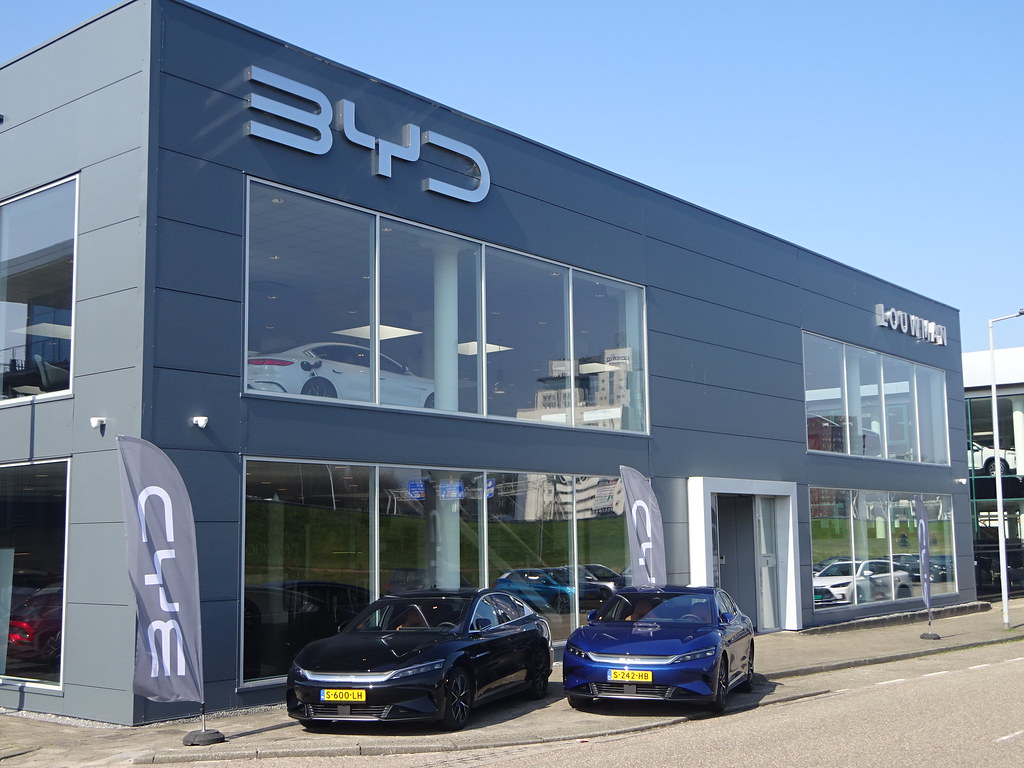
New industry figures reveal that one in ten cars sold in the UK during June were manufactured by Chinese brands, marking a significant rise in market presence.
Emerging Chinese manufacturers such as BYD, Jaecoo, and Omoda are rapidly growing their footprint in the UK market. Sales data from the Society of Motor Manufacturers and Traders (SMMT) shows that 18,944 cars from Chinese-owned brands—including MG and Polestar—were sold in June, representing 10% of all UK car sales. This figure has nearly doubled from 6% in the same month last year.
Over the first six months of 2025, Chinese-made cars accounted for more than 8% of UK sales—roughly one in every twelve vehicles sold. This is a notable increase from 5% in 2023 and 2024, with much of the growth fueled by electric vehicles (EVs).
By comparison, Chinese brands make up 4.3% of car sales across the European Union, with lower market shares in Germany (1.6%) and France (2.7%), though Spain reports a higher 9.2%.
Competitive Advantages and Challenges
Felipe Munoz, analyst at Jato Analytics, attributes the UK’s strong Chinese car sales to the absence of tariffs and the rising popularity of electric vehicles. “MG is also playing like a local brand,” Munoz said. “Unlike France and Germany, the UK doesn’t have a large domestic industry to protect.”
However, some industry veterans caution that the UK auto sector may struggle to compete with these growing imports. John Neill, former SMMT President and ex-CEO of Unipart, warned that if Chinese brands continue to dominate the market, the UK might need to impose quotas or encourage local manufacturing. “Chinese manufacturers are producing cars which are better, cheaper, and more innovative in every sector of the market,” Neill said. “If they are going to sell here, we are going to have to get the Chinese to manufacture here.”
Tariff Policies and Global Context
Unlike the EU, U.S., and Canada—which have imposed steep tariffs on Chinese electric vehicles, some as high as 45% and even 100% in Canada—the UK government has so far faced little pressure to follow suit. The EU and China are negotiating to replace tariffs with a minimum price system, and some Chinese manufacturers are opening factories in the EU, allowing tariff-free exports across Europe, including the UK.
SMMT reports that one in four new car buyers in the UK now choose electric vehicles. Mike Hawes, SMMT’s chief executive, cautioned that the rapid shift to electric has been largely driven by “unsustainable” discounting by manufacturers. He noted, “As we have seen in other countries, government incentives can supercharge the market transition.”
What The Author Thinks
The rapid growth of Chinese car brands in the UK reflects shifting global dynamics in manufacturing and trade. While affordable, innovative EVs from China provide consumers with attractive options, the UK’s domestic industry faces a tough challenge. Without strategic incentives to boost local production or balanced trade policies, the country risks becoming overly dependent on imports. Encouraging partnerships or joint ventures with Chinese firms could be a smart way forward, blending innovation with economic security.
Featured image credit: harry_nl via Flickr
For more stories like it, click the +Follow button at the top of this page to follow us.
